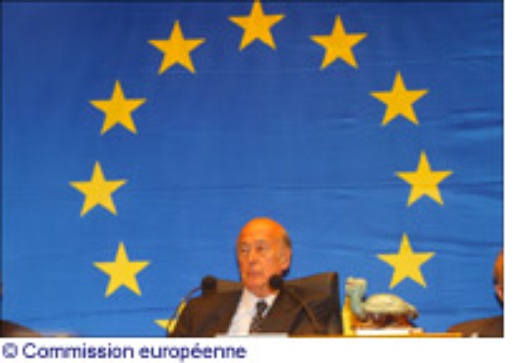For a permanent European Convention
Published on
Translation by:
Francesca ReinhardtThe European constitutional treaty was drawn up by a Convention bringing together members of Parliament and representatives of member states. Why not make a permanent review body?
 The European Union is a hybrid organisation which requires a balance between the interests of individual states on the one hand and collective European interests on the other. It is no longer a conventional international organisation, which means that state interests alone are not pre-eminent. However, nor is it a state in itself, which means that the European Parliament alone could not prepare a draft constitution. In the context of the Convention on the Future of Europe, general European interests were represented by the Commission, but also by members of the European Parliament (MEPs.) As for the interests of member states, they were defended by the delegates from the national executives, but also by members of national parliaments. The overwhelming majority of delegates at the Convention were members of Parliament, which distinguishes it from intergovernmental conferences (IGCs,) which are more like international negotiations where diplomats wheel and deal behind closed doors. One of the benefits of the convention method is the opportunity for a public and democratic debate on the draft constitutional treaty.
The European Union is a hybrid organisation which requires a balance between the interests of individual states on the one hand and collective European interests on the other. It is no longer a conventional international organisation, which means that state interests alone are not pre-eminent. However, nor is it a state in itself, which means that the European Parliament alone could not prepare a draft constitution. In the context of the Convention on the Future of Europe, general European interests were represented by the Commission, but also by members of the European Parliament (MEPs.) As for the interests of member states, they were defended by the delegates from the national executives, but also by members of national parliaments. The overwhelming majority of delegates at the Convention were members of Parliament, which distinguishes it from intergovernmental conferences (IGCs,) which are more like international negotiations where diplomats wheel and deal behind closed doors. One of the benefits of the convention method is the opportunity for a public and democratic debate on the draft constitutional treaty.
The relevance of the convention method
The recognition of the variety of interests present sealed the success of the convention method, which merits a defence against its critiques. Some consider it to be anti-democratic, despite the fact that its members are at least indirectly democratically elected. Others maintain that the European Parliament should have drafted the Constitution. This, however, would upset the delicate balance between the different interests present and imply that only general European interests need be considered. Moreover, several other similar efforts were unsuccessful, such as the Spinelli project in 1984, and the Herman project in 1994.
In contrast, the Philadelphia Conference, which established the American constitution, was composed strictly of state representatives and yet succeeded in creating a synthesis of state and federal interests, which would suggest that members of national parliaments should be the authors of the draft constitution. Nevertheless, Europe’s history is not the same as America’s, and any kind of federalism has to adapt itself to the political body in question. European states have a longer history which heightens national characteristics, and general European interests often come second. Will it be necessary to maintain member-state representation in the future? It is conceivable to do so if one considers how other federal bodies deal with constitutional revisions, such as the American Senate or the German Bundesrat.
Why have a permanent convention body?
The member states are busy trying to ratify a constitutional treaty. This text would have the symbolic value of a constitution, but legally speaking it is nothing more than a treaty. The draft treaty does not radically change the organization of the EU, but a “yes” vote seems necessary as a means of renewing democratic engagement in Europe. That said, the draft is far from perfect, and work on revisions should start without delay. To call a new convention, however, would upset the constitutional imagery associated with a definitive convention and draft treaty. One should not underestimate the importance of symbols in welding together a society, and this is precisely the fundamental goal of the draft treaty – to be the founding statute for a united people of Europe. Constitutional patriotism obviously takes a long time to develop, but it is an element of European identity which would be more readily accepted than certain cultural elements, for example. Living examples of this exist, such as the United States of America where the constitutional order is like a religion with the Constitution as its bible and the founding fathers as the disciples…
Entrenching a convention body in the EU Constitution would make it the ordinary review body, a notion which exists in most constitutions. This would address the objection of some critics that the draft treaty is too ephemeral, giving national governments the opportunity to improve the treaty as fast as possible. This step could cause a big change in the way people look at the EU, but it is only the preface to a whole series of necessary reforms. It does not constitute in and of itself the institutional change that would lead the way towards European federalism. That kind of change has to develop gradually, as shown by the political evolution in the United States from 1787 to 1865. The convention body could meet every year or every two years to get up to date on the functioning of EU institutions and policies and make proposals to improve the system. The number of revisions would likely slow down over time. Ultimately this means that the convention would take over the role of the ICGs in reviewing the structure of the EU.
Translated from Pour une Convention permanente



